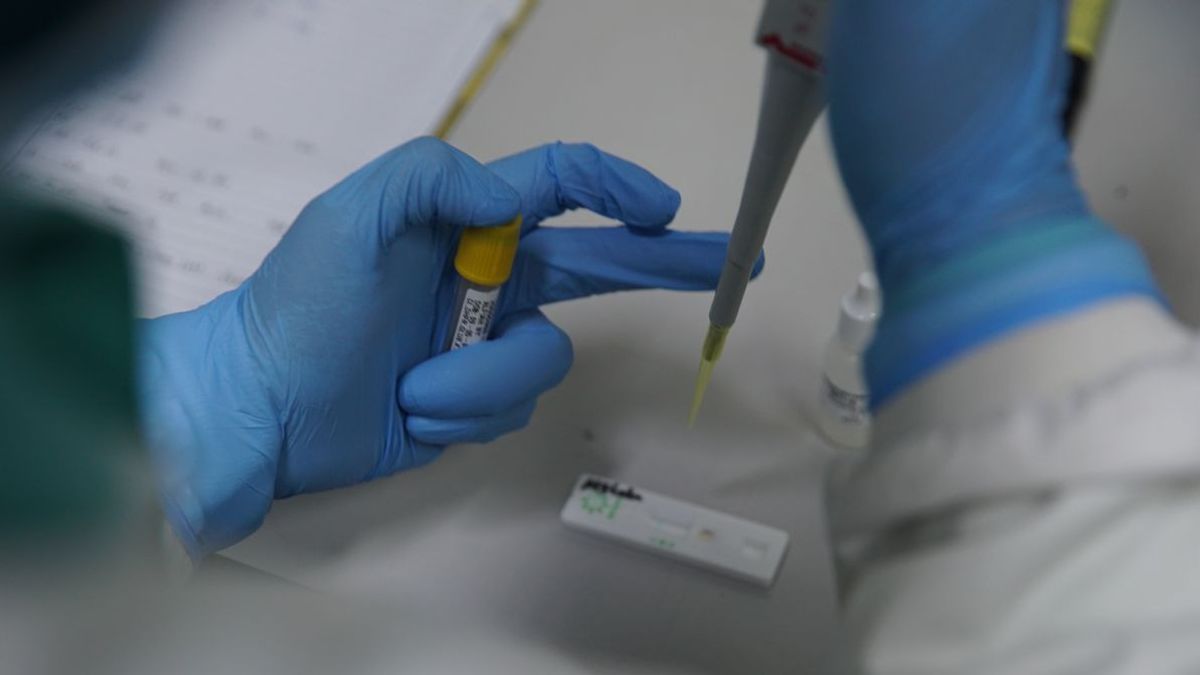JAKARTA - Minister of Health Budi Gunadi Sadikin said that the background of Indonesia's gradual transition from a pandemic to a COVID-19 endemic was influenced by the background of people's immunity which was more adaptive to new variants.
"The increase in COVID-19 cases is due to a new variant. The main reason for the spike in cases is due to a new variant. This is far from decisive for the big Eid and New Year events," said Budi Gunadi Sadikin, quoted by Antara, Tuesday, May 17.
Budi said the increase in COVID-19 cases that currently hit China, America, Taiwan and Japan was triggered by the emergence of the BA.2 (Omicron) variant.
But based on domestic observations, Budi said, the situation in Indonesia was different because there was no significant increase in confirmed cases in the country due to the new variant of SARS-CoV-2 that causes COVID-19.
"Indonesian people's immunity to the new variant is better," he said.
According to Budi, this is shown by a serosurvey report to measure the community's antibody levels derived from the government's COVID-19 vaccination program as well as natural immunity obtained from COVID-19 infection.
A serosurvey held in December 2021 in Java-Bali showed that 93 percent of the local community already had antibodies derived from vaccination, natural immunity due to infection or a combination of both.
In the second serosurvey conducted in May 2022, the community's antibody levels increased again from 93 percent to 99.2 percent. "This is due to the combination of accelerated vaccination, as well as the higher transmission rate of Omicron from Delta, so that many of our people are infected," he said.
Budi said the situation not only caused the population to have more antibodies, but also the antibody levels were much higher.
"In December, the average antibody titer was in the hundreds of order around 500-600, but in March it was measured in the same population, the order rose by thousands around 7000-8,000," he said.
Budi also said that the super immunity phenomenon occurred in Indonesia due to a combination of the government's vaccination program and natural immunity due to COVID-19 infection.
"Global research results show that vaccination coupled with infection forms super immunity. So the antibody levels are high and last a long time," he said.
Budi said the government had started to make a transition from the pandemic phase to the endemic phase by allowing people not to use masks when doing outdoor activities or in open places where people were not crowded.
However, masks are still used in conditions of activities in closed rooms, public transportation and vulnerable populations such as the elderly, having comorbid diseases, pregnant women, children who have not been vaccinated, and others.
Masks are also still used for people with symptoms such as cough, runny nose, fever, and others.
In addition to easing masks, the government has also relaxed provisions for domestic and foreign travelers who have been fully vaccinated, and do not need to carry out PCR or antigen tests.
The English, Chinese, Japanese, Arabic, and French versions are automatically generated by the AI. So there may still be inaccuracies in translating, please always see Indonesian as our main language. (system supported by DigitalSiber.id)













